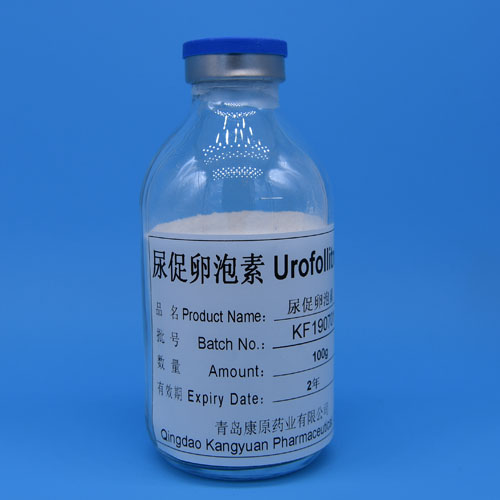Ulinastatin is a natural protease inhibitor that has been used in the
treatment of various inflammatory conditions, such as acute pancreatitis and
sepsis. Its effectiveness is attributed to its ability to inhibit a wide range
of enzymes involved in the inflammatory response. The pharmaceutical industry
has been interested in developing Ulinastatin as a drug, leading to the
establishment of a production process that meets regulatory standards and
ensures high-quality products.
Discovery of Ulinastatin:
Ulinastatin was first isolated from the urine of healthy human subjects in
the 1980s. Its inhibitory activity against trypsin, a digestive enzyme, was
identified, leading to further research into its protease inhibitory properties.
In the following years, several other enzymes were found to be inhibited by
Ulinastatin, including elastase and chymotrypsin, which are involved in the
inflammatory process.

Production Process:
The production of Ulinastatin involves the cultivation of a specific strain
of bacteria, followed by the purification of the protein from the culture broth.
The bacteria are genetically engineered to produce high levels of Ulinastatin,
which is then extracted and purified using several chromatography techniques.
The final product is tested for purity, potency, and safety before it is
released for distribution.
Quality Control:
The production of Ulinastatin is subject to strict quality control measures
to ensure that the final product meets the required standards. These measures
include testing at every stage of the production process, from the cultivation
of the bacteria to the final product. The product is also tested for its
stability and shelf-life to ensure that it remains effective over time.
Conclusion:
Ulinastatin has been successfully developed as a drug for the treatment of
inflammatory conditions. Its production process has been established to meet
regulatory standards and ensure high-quality products. The pharmaceutical
industry's interest in Ulinastatin manufacturing continues to grow, as it offers
a promising solution for various inflammatory conditions. As the industry
progresses, it will continue to refine the production process and quality
control measures to ensure that Ulinastatin remains a safe and effective
drug.